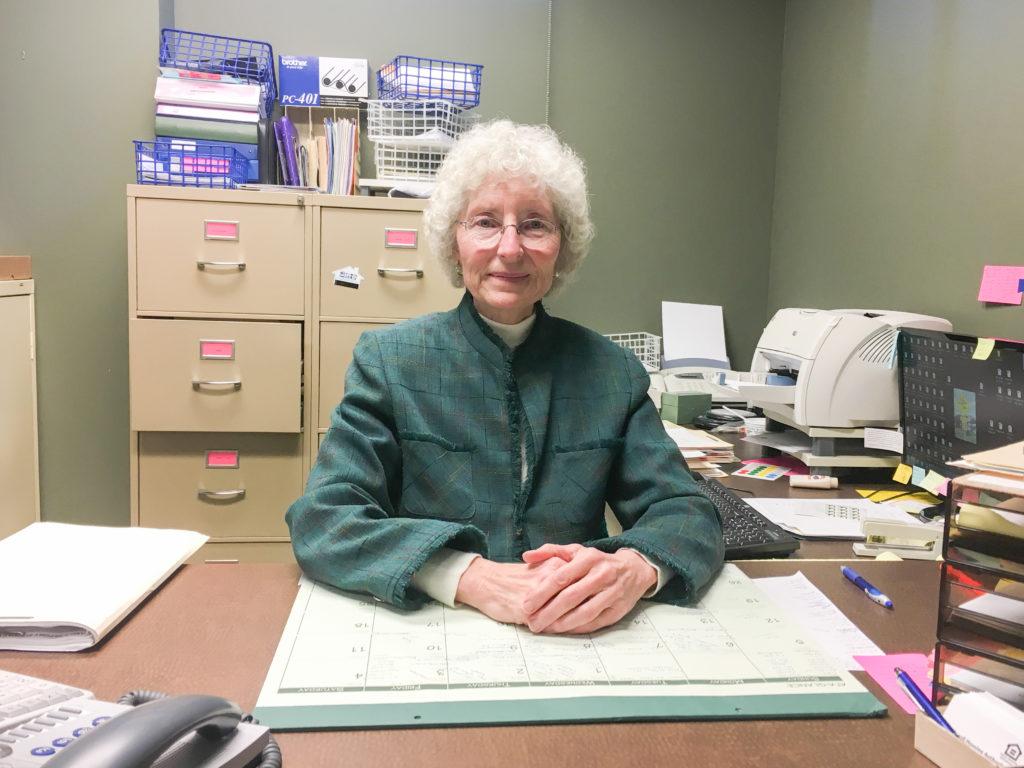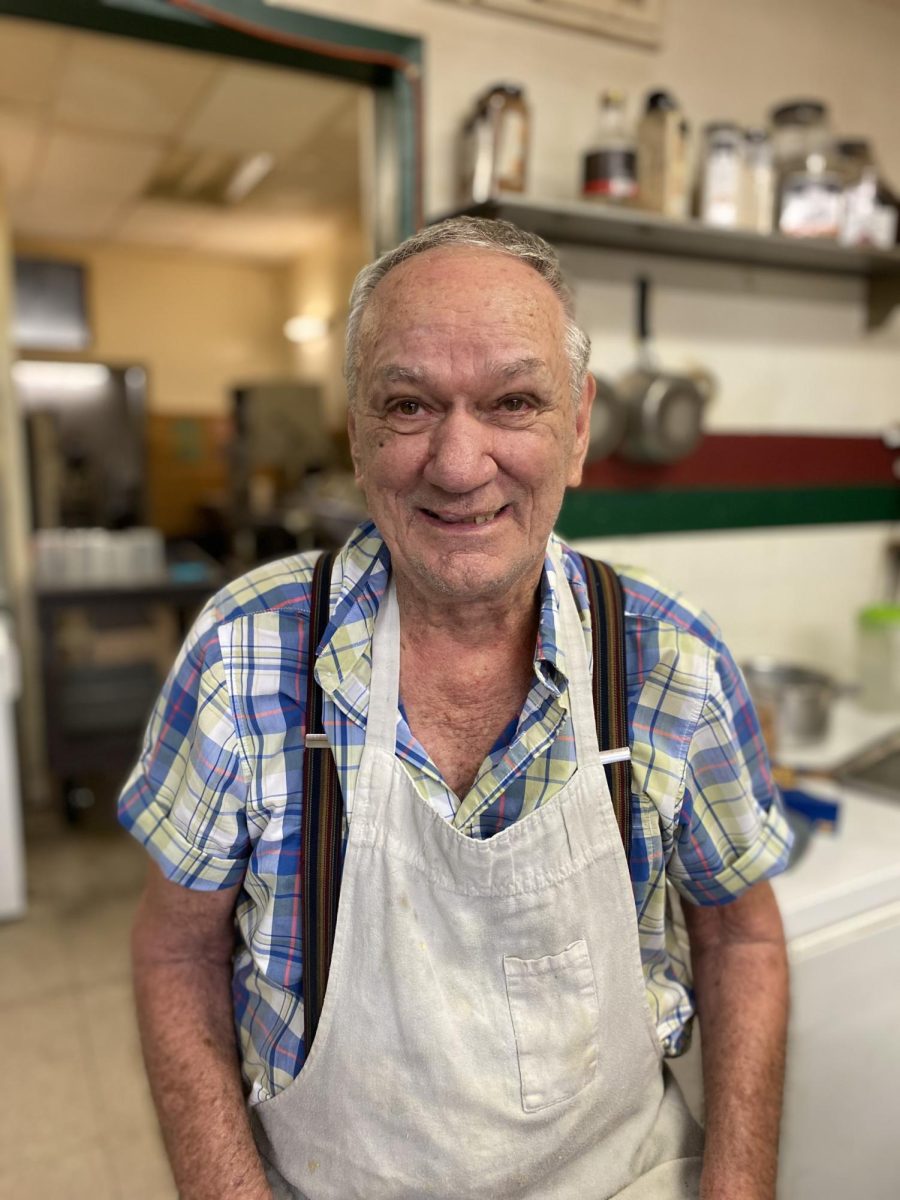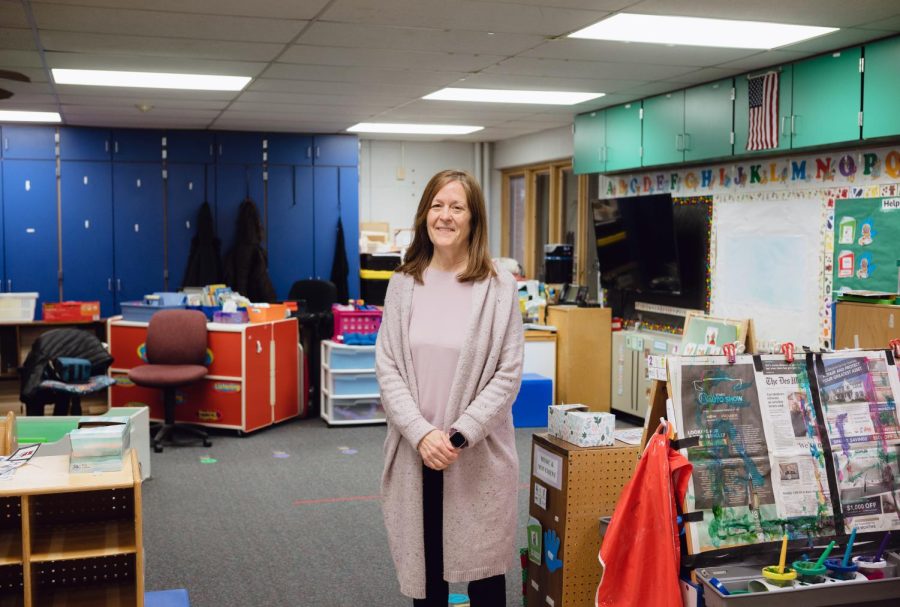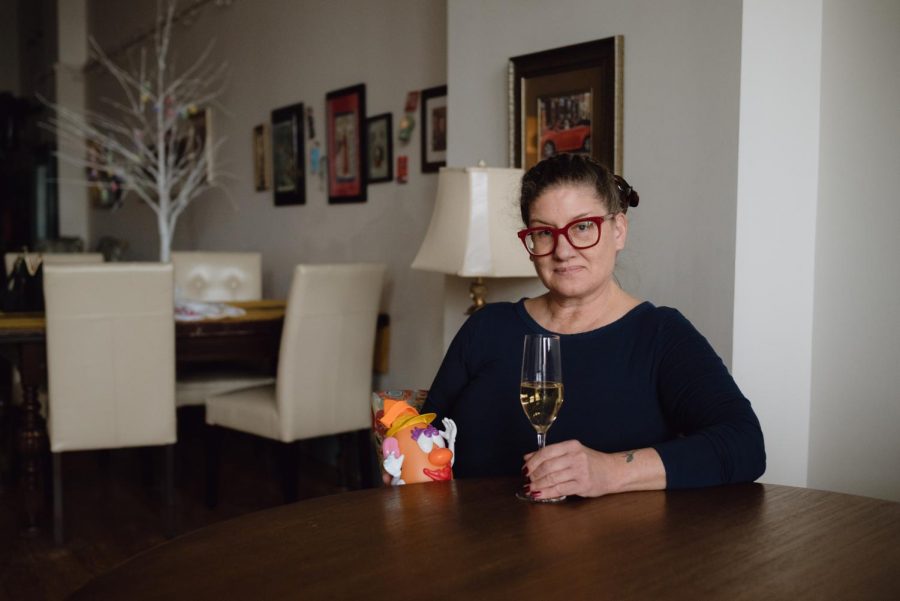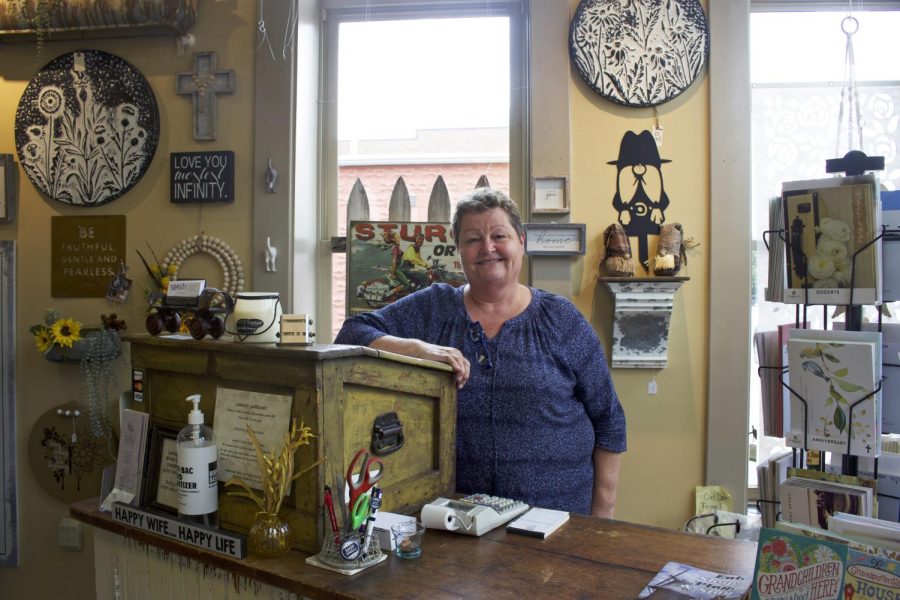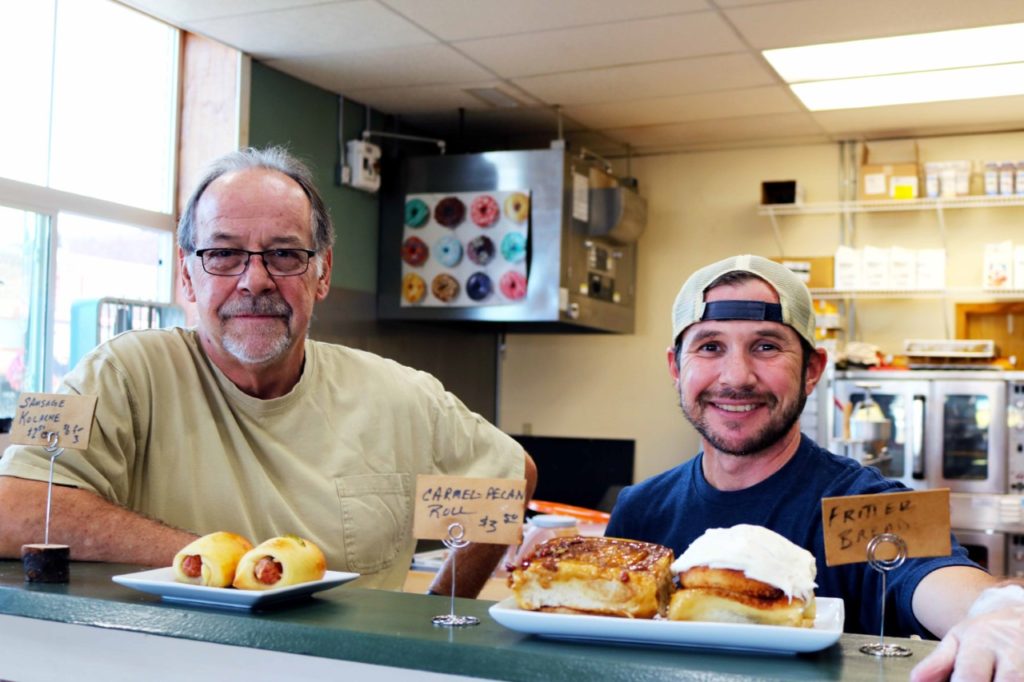Contributed photo
Sharon Van Dyke, a lifelong Grinnellian, represents the title in its truest form. Van Dyke’s experiences provide both a contrast to the Grinnell we now inhabit, while still working to ensure everyone is able to enjoy the city as much as she has throughout her life. As the sole employee of the Low Rent Housing office for the City government, Van Dyke’s day-to-day work is uniquely tied to the people of Grinnell.
“I’ve been at this position with the Housing Authority for thirty years,” Van Dyke said. “When I first took this job, what I liked about it was it’s a helping profession, … and I’m not stuck behind the desk all day, every day because I go out and do unit inspections and meet with families and work with them in that regard.”
Van Dyke has been a witness not just of the day-to-day struggles of Grinnell families, but she also has watched as the City transformed from a commercial center to becoming reliant on the local Walmart for basic necessities. The pattern she identified, of Walmart moving into a town and subsequently decimating the local businesses, has been repeated across America.
“[There have been] huge changes from when I was growing up to now, economically. That’s all triggered by Wal Mart coming in the first time,” Van Dyke said. “The downtown is phenomenally different from when I was growing up. There are no stores and there were, besides the multiplicity of banks and whatever, there were two drugstores that were real drugstores, a Penny’s and a Spurgeon’s and a department store and a men’s store, a whole bunch of things. That part, I think, is the biggest change.”
The marked difference between Grinnell then and now is only accentuated by the advancement of construction and renovation taking place in the downtown area. Van Dyke has had to move with the City Offices to the basement of the former Transportation Museum. Her previous office was on the ground floor of the soon-to-be boutique hotel that sits across from Central Park.
“It’s a disaster at the moment, the pictures they made look amazing,” Van Dyke said. “I can remember going to one of those Spaulding buildings, the last one they’re renovating, when it was a shoe factory, and I can remember going to the depot when it was a real train depot and picking people up from the passenger train and I’m not that much of an antique.”
In addition to her job with the Housing Authority, Van Dyke’s family farm has been around since her parents bought land just outside the City in the 1950s. Originally a full working farm, with crops, dairy production and 300-400 laying chickens, Van Dyke and her family now run a smaller operation with a full equestrian center. The Grinnell Equestrian Club uses the space for their rides and practices, forging a connection between rotating students and a family that has been a Grinnell staple.
“Dad always rotated crops for better soil management, we always hauled manure like crazy for more natural fertilizer, we did it all,” Van Dyke said. “We had sows and baby pigs and lambs and all sorts of things, and it evolved a little bit over the years. … Now it’s just crops and the horse business.”
Serving the City and Poweshiek County, the horse farm offers lessons and boarding for horses. Van Dyke is deeply integrated with both the County and City through lessons and her work, as she not only manages the Housing Authority for Grinnell, but also all of Poweshiek. She reaffirms that Grinnell is where these two passions were meant to come together, as the City has provided her with the best of small town life and proximity to cultural hubs.
“I like the variety and feel good about the physical environment, having been to a lot of other places. The other plus of Grinnell is actually its location too,” Van Dyke said. “It’s an hour, give or take, to Iowa City, Ames, Des Moines, Cedar Falls for cultural events that you just can’t support in a town this size. It’s not an impossibility to drive an hour and see some of those things.”




























































